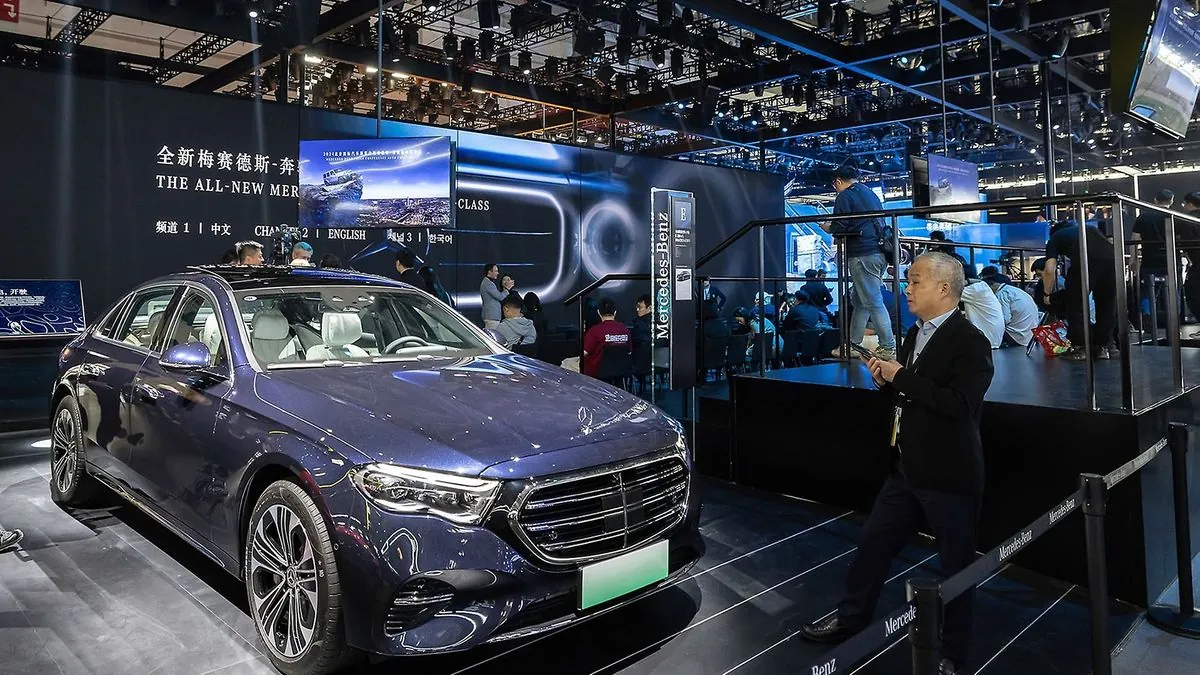Mercedes-Benz Slashes Profit Forecast Amid China Market Woes
Mercedes-Benz issues stark profit warning due to China's economic slowdown, cutting its 2024 operating margin forecast. The luxury carmaker faces challenges from real estate crisis and EV price war in its crucial Chinese market.

Mercedes-Benz Group AG, the renowned German luxury automaker, has issued a significant profit warning, signaling a challenging period ahead for the company. The announcement, made on September 19, 2024, reflects the deteriorating economic conditions in China, a crucial market for the Stuttgart-based manufacturer.
The company, founded in 1926 and known for its commitment to excellence as reflected in its slogan "The Best or Nothing," has reduced its 2024 operating profit margin forecast for its automotive division from 10-11% to 7.5-8.5%. This adjustment comes just two months after the previous forecast, highlighting the rapidly changing market dynamics.
China, which accounts for over a third of Mercedes-Benz's car sales, is experiencing a real estate market downturn and an intensifying price war in the electric vehicle (EV) sector. These factors have led to a decrease in demand for luxury vehicles, impacting the company's performance.

The magnitude of the profit warning has taken many by surprise, especially considering that Mercedes-Benz introduced the world's first production automobile in 1886 and has since been at the forefront of automotive innovation. The company now expects its operating margin in the second half of 2024 to be as low as 6%, a stark contrast to the 15% figure reported in 2022.
This development follows a similar warning from rival BMW, another member of the "German Big 3" luxury automakers, earlier this month. The parallel challenges faced by these industry leaders underscore the broader issues affecting the luxury car market in China.
"We are facing a deterioration of the macroeconomic environment in China, which has led us to revise our outlook for the year."
The profit warning has implications beyond immediate financial performance. Mercedes-Benz, which has manufacturing facilities in 30 countries, may need to reconsider its capital return plans. The company had intended to return around 12 billion euros to shareholders through buybacks and dividends in 2024. However, with the revised free cash flow estimate of 8.5 billion euros, these plans may need adjustment.
Despite these challenges, some analysts suggest that Mercedes-Benz's stock could present a buying opportunity if the Chinese market rebounds. The company's current valuation, at less than 5 times forward earnings, is below its long-term average of 7.
However, the road ahead remains uncertain. The Chinese luxury car market faces headwinds from ongoing real estate issues, intensifying EV competition, and potential tariff disputes between China and the European Union. Mercedes-Benz, with its significant presence in the EV market through its EQ line, is reportedly offering substantial discounts on electric vehicles in China to remain competitive.
As Mercedes-Benz navigates these challenges, it will likely draw on its rich history of innovation and adaptability. The company, which has been listed on the Frankfurt Stock Exchange since 1901 and has long been recognized for its sustainability efforts, will need to leverage its strengths to maintain its position in the evolving global automotive landscape.


































